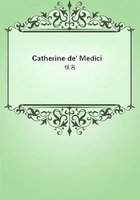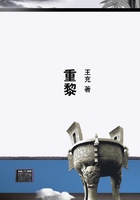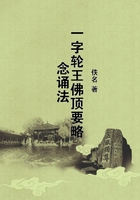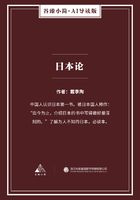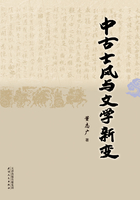And, fifthly, the fact that all sorts of violence, cruelty, inhumanity, are not only tolerated, but even permitted by the government, when it suits its purposes, was impressed on them most forcibly by the inhuman treatment they were subjected to; by the sufferings inflicted on children, women and old men; by floggings with rods and whips; by rewards offered for bringing a fugitive back, dead or alive; by the separation of husbands and wives, and the uniting them with the wives and husbands of others for sexual intercourse; by shooting or hanging them. To those who were deprived of their freedom, who were in want and misery, acts of violence were evidently still more permissible. All these institutions seemed purposely invented for the production of depravity and vice, condensed to such a degree that no other conditions could produce it, and for the spreading of this condensed depravity and vice broadcast among the whole population "Just as if a problem had been set to find the best, the surest means of depraving the greatest number of persons," thought Nekhludoff, while investigating the deeds that were being done in the prisons and halting stations. Every year hundreds of thousands were brought to the highest pitch of depravity, and when completely depraved they were set free to carry the depravity they had caught in prison among the people. In the prisons of Tamen, Ekaterinburg, Tomsk and at the halting stations Nekhludoff saw how successfully the object society seemed to have set itself was attained.
Ordinary, simple men with a conception of the demands of the social and Christian Russian peasant morality lost this conception, and found a new one, founded chiefly on the idea that any outrage or violence was justifiable if it seemed profitable.
After living in a prison those people became conscious with the whole of their being that, judging by what was happening to themselves, all the moral laws, the respect and the sympathy for others which church and the moral teachers preach, was really set aside, and that, therefore, they, too, need not keep the laws.
Nekhludoff noticed the effects of prison life on all the convicts he knew--on Fedoroff, on Makar, and even on Taras, who, after two months among the convicts, struck Nekhludoff by the want of morality in his arguments. Nekhludoff found out during his journey how tramps, escaping into the marshes, persuade a comrade to escape with them, and then kill him and feed on his flesh. (He saw a living man who was accused of this and acknowledged the fact.) And the most terrible part was that this was not a solitary, but a recurring case.
Only by a special cultivation of vice, such as was perpetrated in these establishments, could a Russian be brought to the state of this tramp, who excelled Nietzsche's newest teaching, and held that everything was possible and nothing forbidden, and who spread this teaching first among the convicts and then among the people in general.
The only explanation of all that was being done was the wish to put a stop to crime by fear, by correction, by lawful vengeance as it was written in the books. But in reality nothing in the least resembling any of these results came to pass. Instead of vice being put a stop to, it only spread further; instead of being frightened, the criminals were encouraged (many a tramp returned to prison of his own free will). Instead of being corrected, every kind of vice was systematically instilled, while the desire for vengeance did not weaken by the measures of the government, but was bred in the people who had none of it.
"Then why is it done?" Nekhludoff asked himself, but could find no answer. And what seemed most surprising was that all this was not being done accidentally, not by mistake, not once, but that it had continued for centuries, with this difference only, that at first the people's nostrils used to be torn and their ears cut off; then they were branded, and now they were manacled and transported by steam instead of on the old carts. The arguments brought forward by those in government service, who said that the things which aroused his indignation were simply due to the imperfect arrangements of the places of confinement, and that they could all be put to rights if prisons of a modern type were built, did not satisfy Nekhludoff, because he knew that what revolted him was not the consequence of a better or worse arrangement of the prisons. He had read of model prisons with electric bells, of executions by electricity, recommended by Tard; but this refined kind of violence revolted him even more.
But what revolted Nekhludoff most was that there were men in the law courts and in the ministry who received large salaries, taken from the people, for referring to books written by men like themselves and with like motives, and sorting actions that violated laws made by themselves according to different statutes; and, in obedience to these statutes, sending those guilty of such actions to places where they were completely at the mercy of cruel, hardened inspectors, jailers, convoy soldiers, where millions of them perished body and soul.
Now that he had a closer knowledge of prisons, Nekhludoff found out that all those vices which developed among the prisoners--drunkenness, gambling, cruelty, and all these terrible crimes, even cannibalism--were not casual, or due to degeneration or to the existence of monstrosities of the criminal type, as science, going hand in hand with the government, explained it, but an unavoidable consequence of the incomprehensible delusion that men may punish one another. Nekhludoff saw that cannibalism did not commence in the marshes, but in the ministry. He saw that his brother-in-law, for example, and, in fact, all the lawyers and officials, from the usher to the minister, do not care in the least for justice or the good of the people about whom they spoke, but only for the roubles they were paid for doing the things that were the source whence all this degradation and suffering flowed. This was quite evident.
"Can it be, then, that all this is done simply through misapprehension? Could it not be managed that all these officials should have their salaries secured to them, and a premium paid them, besides, so that they should leave off, doing all that they were doing now?" Nekhludoff thought, and in spite of the fleas, that seemed to spring up round him like water from a fountain whenever he moved, he fell fast asleep.


